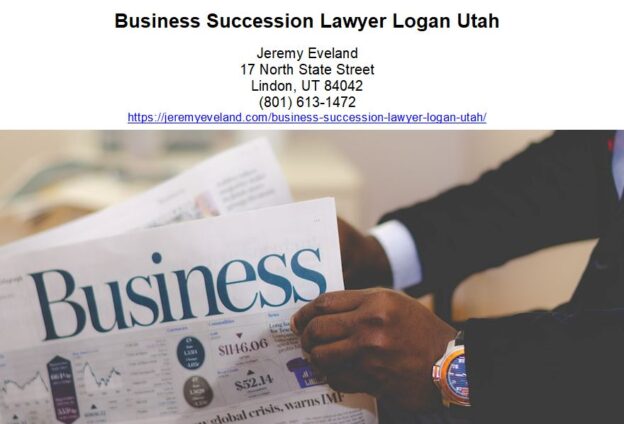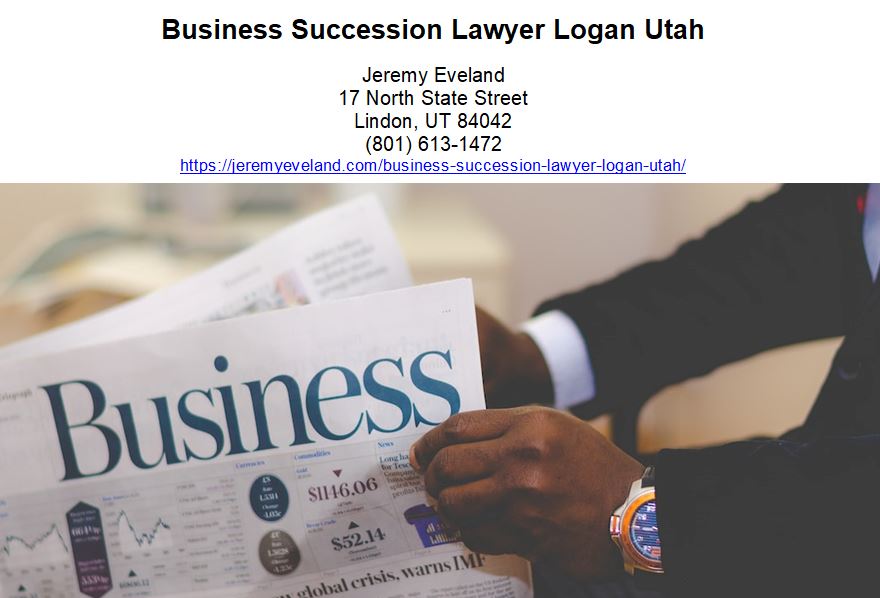In this article, we will uncover the ins and outs of the often misunderstood topic of gift tax. By exploring the intricacies of this subject, you will gain a better understanding of how it may impact you or your loved ones. Whether you are considering gifting assets or are on the receiving end, this article aims to provide you with valuable insights and shed light on any potential concerns. So, grab a cup of tea, get cozy, and let’s dive into the world of gift tax together. Remember, if you have any questions or need further assistance, don’t hesitate to reach out to the attorney listed on our website. They are here to help navigate you through this complex domain and provide the guidance you need. Let’s get started with unraveling the mysteries of gift tax!

What is Gift Tax?
Definition of Gift Tax
Gift tax is a tax imposed by the government on the transfer of property or assets from one person to another without any expectation of receiving something in return. It is levied on the donor rather than the recipient of the gift. The value of the gift determines the amount of tax that may be applicable. The rules and regulations governing gift tax vary from country to country, but it is important for individuals to understand how it works in their own country to avoid any legal complications.
Purpose of Gift Tax
The purpose of gift tax is to prevent individuals from avoiding estate taxes by transferring their assets to others as gifts during their lifetime. By imposing a tax on gifts, the government seeks to ensure that individuals do not use gifts as a means to reduce their overall taxable estate. Gift tax serves as a way to maintain fairness and prevent wealthy individuals from manipulating their assets to minimize their tax burden.
When is Gift Tax Applicable?
Gift tax is applicable when a person gives a gift to another person without receiving anything in return, and the value of the gift exceeds a certain threshold set by the government. The threshold amount may vary depending on the jurisdiction. It is important to note that small and insignificant gifts are usually exempt from gift tax. The specifics regarding when gift tax is applicable can be found in the tax laws of each country or state.
Gift Tax Exemptions
Annual Gift Tax Exclusion
The annual gift tax exclusion allows individuals to make gifts up to a certain value each year without incurring any gift tax. The specific exclusion amount may change from year to year, so it is advisable to stay updated on the current limit. By utilizing the annual gift tax exclusion, individuals can transfer assets to their family members or loved ones gradually over time, reducing their overall taxable estate while avoiding gift tax.
Lifetime Gift Tax Exemption
In addition to the annual gift tax exclusion, many jurisdictions offer a lifetime gift tax exemption. The lifetime exemption is the maximum amount an individual can give as gifts tax-free during their lifetime. Once the total value of gifts made by an individual exceeds this exemption amount, gift tax may be applicable. It is important to consult with a tax professional to understand the current lifetime gift tax exemption in your jurisdiction and how it applies to your specific situation.
Qualified Gift Tax Exclusions
Certain types of gifts are exempt from gift tax regardless of their value. These qualified gift tax exclusions may include payments for medical expenses, tuition fees, and other qualified educational expenses. The specifics of these exclusions vary depending on the country or state, so it is necessary to familiarize yourself with the gift tax laws in your jurisdiction.
Click Here For More Information
Gift Tax Rates
Federal Gift Tax Rates
The gift tax rates imposed by the federal government can vary depending on the value of the gift. The rates may range from a certain percentage for gifts below a certain threshold to a higher percentage for gifts exceeding that threshold. It is crucial to understand the current federal gift tax rates and the corresponding gift tax brackets to accurately calculate the gift tax liability.
State Gift Tax Rates
In addition to federal gift tax, some states may impose their own gift tax rates. These rates are separate from the federal rates and may vary from state to state. Individuals residing in states with state-specific gift tax laws need to be aware of the rates imposed by their state, as they may differ from the federal rates. Consulting with a tax professional who is familiar with the laws of your specific state can help ensure compliance with both federal and state gift tax requirements.
Calculating Gift Tax
Determining the Value of Gifts
To calculate gift tax, the first step is to determine the value of the gift. The value of a gift is usually its fair market value, which is the price that the property would sell for on the open market. It is important to properly document the value of the gift for tax purposes. In some cases, professional appraisals may be necessary to determine the fair market value, especially for assets that are difficult to value, such as real estate or artwork.
Applying Gift Tax Exemptions
Once the value of the gift is determined, applicable gift tax exemptions, such as the annual exclusion or lifetime exemption, can be applied. These exemptions reduce or eliminate the gift tax liability. By utilizing these exemptions effectively, individuals can minimize their tax burden while still transferring assets to their loved ones.
Gift Splitting Rules
Gift splitting allows married couples to combine their individual gift tax exemptions, effectively doubling the amount of assets they can transfer tax-free. To qualify for gift splitting, both individuals must consent and file a gift tax return (Form 709). This strategy can be beneficial for couples who wish to transfer significant assets to their children or other beneficiaries without incurring gift tax. Consulting a tax professional is recommended to ensure compliance with gift splitting rules.
Gift Tax Reporting
Filing Requirements
Individuals who make gifts above the annual gift tax exclusion or utilize their lifetime gift tax exemption may be required to file a gift tax return. The filing requirements may vary depending on the country or state. It is important to understand the specific rules and regulations governing gift tax reporting to avoid any penalties or legal issues.
Gift Tax Return (Form 709)
The gift tax return, also known as Form 709, is used to report gifts that exceed the annual exclusion or utilize the lifetime exemption. This form provides detailed information about the gifts made, the value of each gift, and any applicable exemptions or deductions. Filing an accurate and timely gift tax return is crucial to ensure compliance with the tax laws and avoid any penalties.
Due Dates and Extensions
The due date for filing a gift tax return varies depending on the jurisdiction. It is important to file the return on time to avoid penalties and interest charges. In some cases, it may be possible to request an extension if additional time is needed to gather the necessary information for the return. However, it is advisable to consult with a tax professional to determine the specific due date and extension options in your jurisdiction.
Gift Tax Strategies
Reducing Gift Tax Liability
There are several strategies that individuals can employ to reduce their gift tax liability. One common strategy is to make use of the annual gift tax exclusion by making smaller gifts each year instead of a large one-time gift. By spreading out the gifts over multiple years, individuals can take advantage of the annual exclusion and avoid gift tax. Another strategy is to utilize qualified gift tax exclusions, such as paying for medical or educational expenses directly to the service providers, instead of giving cash or assets as gifts.
Maximizing Gift Tax Exemptions
Maximizing gift tax exemptions is another effective strategy to minimize gift tax liability. By utilizing both the annual gift tax exclusion and the lifetime gift tax exemption to their fullest extent, individuals can transfer a significant amount of assets tax-free. This requires careful planning and consideration of the individual’s overall financial situation and goals. Consulting with a tax professional who specializes in gift tax planning can help individuals develop personalized strategies to maximize their gift tax exemptions.
Estate Planning Considerations
Gift tax planning is closely tied to estate planning. By making strategic gifts during one’s lifetime, individuals can effectively transfer assets to their loved ones while minimizing estate taxes. Gift tax strategies can be an integral part of an overall estate plan, ensuring a smooth transfer of assets and minimizing the tax burden on the beneficiaries. It is advisable to work with an experienced estate planning attorney or tax professional to develop a comprehensive plan that takes into account both gift tax and estate tax considerations.

Gift Tax and Estate Planning
Impact of Gift Taxes on Estate Planning
Gift taxes can have a significant impact on estate planning. By making gifts during one’s lifetime to reduce the overall taxable estate, individuals can minimize estate taxes and preserve more wealth for their beneficiaries. However, it is important to consider the potential gift tax liability and plan accordingly to avoid any unintended consequences. Working with an experienced estate planning attorney who has expertise in gift tax planning can help individuals navigate the complexities of gift taxes and develop an estate plan that is tailored to their specific needs and goals.
Using Gift Tax Strategies for Wealth Transfer
Gift tax strategies can be a powerful tool for wealth transfer. By strategically gifting assets to family members or other beneficiaries, individuals can transfer wealth while minimizing the tax burden. Gift tax strategies may include utilizing the annual gift tax exclusion, making use of the lifetime gift tax exemption, and implementing advanced techniques such as trusts or family limited partnerships. These strategies require careful planning and consideration of the individual’s overall financial situation and goals. Consulting with a qualified estate planning attorney who specializes in gift tax planning can help individuals develop a personalized wealth transfer strategy.
Effects on Inheritance and Gifted Assets
Gifted assets can have different legal and financial implications compared to inherited assets. While gifts are typically subject to gift tax, inherited assets may be subject to estate tax. Additionally, the cost basis of gifted assets may differ from the cost basis of inherited assets, which can impact capital gains taxes when the assets are sold. It is important to understand the potential tax implications and consider them when making decisions regarding gifts or inheritances. Consulting with a tax professional or estate planning attorney can provide valuable guidance to ensure a smooth transfer of assets and minimize tax liabilities.
Gift Tax Audits and Penalties
IRS Gift Tax Audits
The Internal Revenue Service (IRS) has the authority to audit gift tax returns to ensure compliance with the tax laws. An audit can involve a review of the gifts made, the valuation of the gifts, and the utilization of any exemptions or deductions. If the IRS determines that there are inaccuracies or omissions on the gift tax return, they may impose penalties and interest charges. It is important to maintain accurate records and documentation of all gifts made to support the information provided on the gift tax return.
Potential Penalties for Non-Compliance
Failure to comply with gift tax laws can result in penalties and interest charges. The specific penalties vary depending on the jurisdiction and the severity of the non-compliance. Common penalties may include monetary fines, interest charges on unpaid taxes, and even criminal charges in extreme cases of tax evasion. To avoid potential penalties, it is advisable to consult with a tax professional and ensure compliance with all gift tax reporting requirements.
Common Gift Tax Audit Triggers
Several factors can increase the likelihood of a gift tax audit by the IRS. Large or unusual gifts, inconsistent valuation methods, failure to file a gift tax return when required, or engaging in complex gift tax strategies may raise red flags and prompt the IRS to initiate an audit. It is important to be aware of these potential triggers and to maintain accurate records and documentation to support the information provided on the gift tax return. Consulting with a tax professional can help individuals navigate potential audit risks and ensure compliance with the tax laws.

Gift Tax vs. Estate Tax
Differences between Gift Tax and Estate Tax
While gift tax and estate tax are both related to the transfer of assets, there are some key differences between the two. Gift tax is imposed on the donor at the time the gift is made, while estate tax is imposed on the estate of the deceased individual. Gift tax applies to gifts made during one’s lifetime, whereas estate tax applies to the total value of the assets left behind after death. The tax rates, exemptions, and filing requirements for gift tax and estate tax may also differ.
Coordination of Gift and Estate Tax
The gift tax and estate tax are closely linked, and proper coordination is essential to minimize overall tax liabilities. Lifetime gifts may reduce the overall taxable estate, thus lowering potential estate tax. However, gifts that exceed the annual exclusion or lifetime exemption may impact the available estate tax exemption. It is crucial to work with an experienced estate planning attorney or tax professional to develop a comprehensive plan that takes into account both gift tax and estate tax considerations, ensuring the most favorable outcome for all parties involved.
Consulting a Gift Tax Attorney
Importance of Professional Guidance
Navigating the complexities of gift tax can be challenging, and making mistakes can result in significant penalties and tax liabilities. Therefore, it is highly recommended to seek professional guidance from a gift tax attorney. A gift tax attorney specializes in gift tax laws and can provide the necessary expertise and advice to ensure compliance, minimize tax liabilities, and maximize the available exemptions and deductions.
Benefits of Consulting a Gift Tax Attorney
Consulting a gift tax attorney can provide a range of benefits. They can help individuals understand the intricacies of gift tax laws, identify applicable exemptions and deductions, and develop personalized gift tax strategies. A gift tax attorney can also assist in filing gift tax returns accurately and on time, as well as represent clients in gift tax audits or disputes with the tax authorities. Their expertise and experience can provide peace of mind and ensure that individuals make informed decisions regarding their gift tax planning.
Contact Information
If you have any questions or need professional guidance regarding gift tax, we encourage you to contact our experienced gift tax attorney at [insert attorney’s contact information]. Our team is dedicated to helping individuals understand and navigate the complexities of gift tax, ensuring compliance with the tax laws and maximizing available exemptions and deductions. Don’t hesitate to reach out to us for personalized assistance with your gift tax planning needs.





















